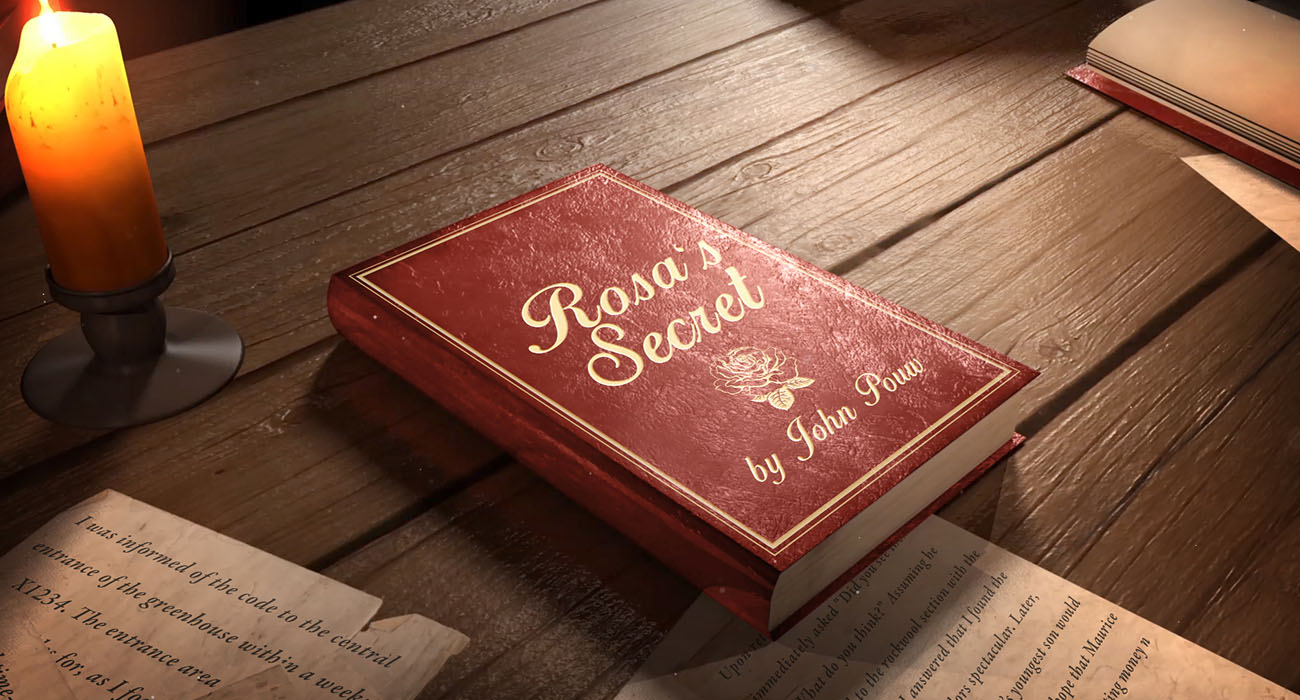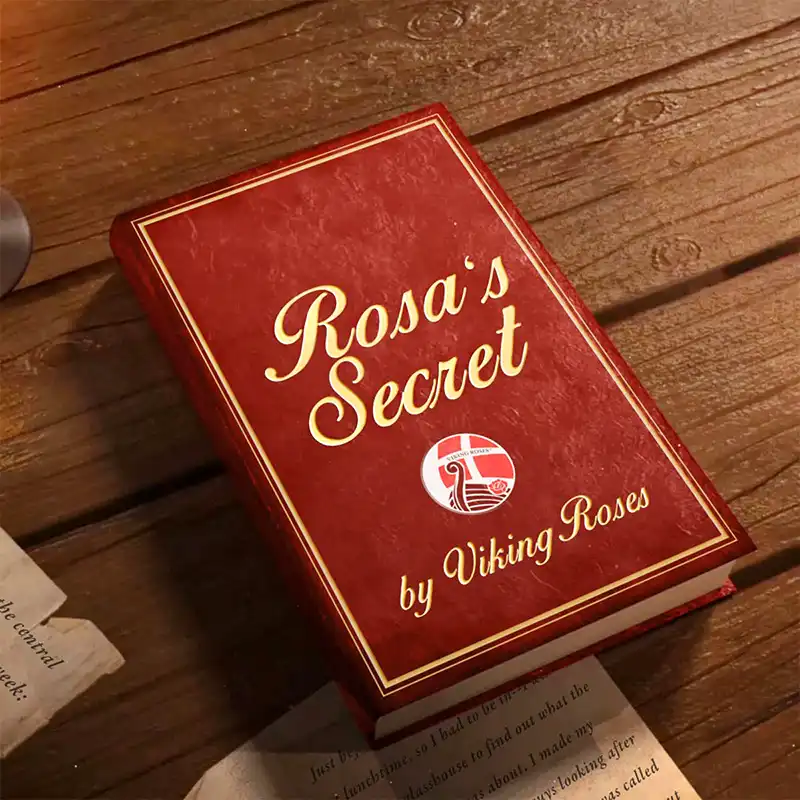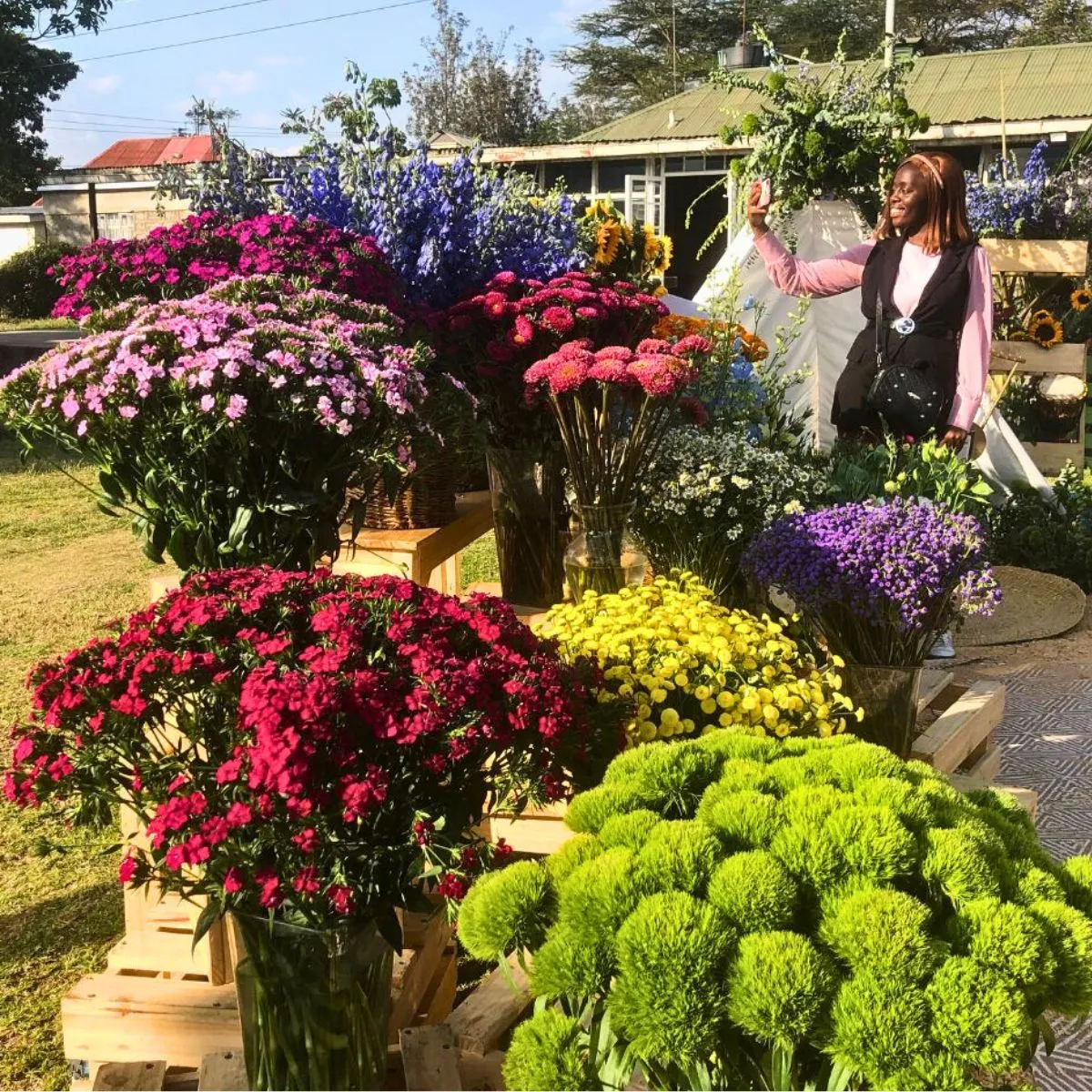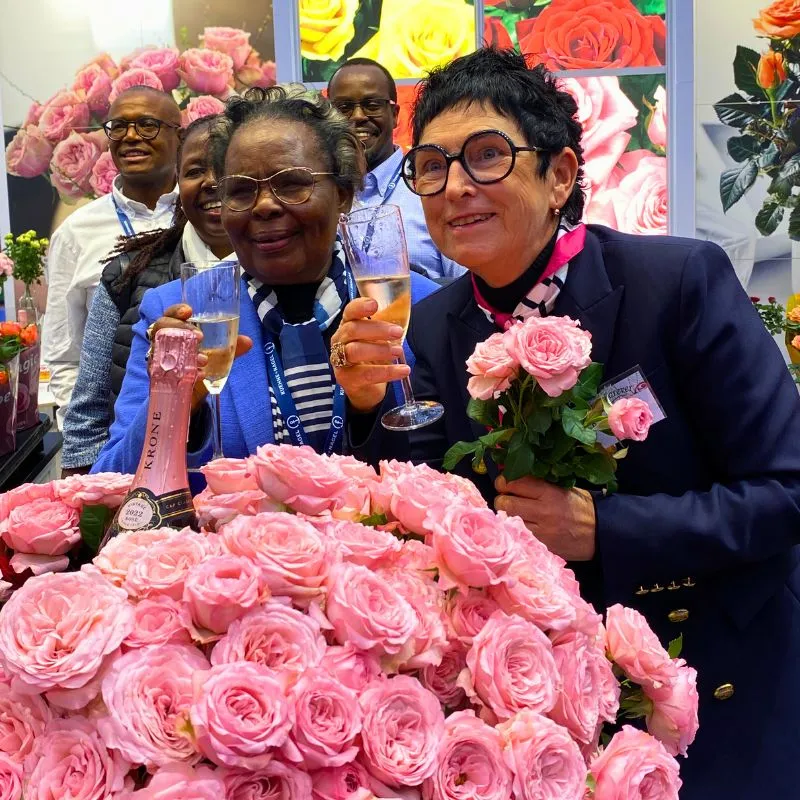Amsterdam, The Hague, and Rotterdam are slowly urbanizing the west of the Netherlands, grabbing bits and pieces of the remaining rural area in their center: the ‘green heart of Holland’. The Boskoop district forms part of these lungs, with its traditional shrub-growing industry. For generations, families carrying their own individual nicknames, have manually worked long stretches of land, 25 meters wide, 400 meters long, surrounded by canals with water levels controlled by windmills. Picturesque, but slowly disappearing by economics, environmental legislation, and housing. Benthuizen is part of this district, seeing fruit trees and strawberries after having been pumped dry as polders at the end of the middle ages, surviving turf-for-fuel digging in the following decades, to specialize in rose bushes in the beginning of the twentieth century.
Grandpa Pieter left the Boskoop nursery he worked for, lent some money from an uncle and started his own rose business in 1917, moving his family of nine from a small terrace house to his newly built house at the head of his land in 1932. Changing crops temporarily to potatoes and wheat, the family survived the famines of World War II. After the liberation, roses were put back in and Grandpa Pieter started looking for mutations, new colors that would spontaneously appear in varieties. Shortly after, he started his own pollination, collecting seeds hips, sowing the seeds after winter and selecting seedlings in spring and summer. The breeding had started. His twin sons took over the business in 1962 after a family meeting in which price and payment conditions were decided. The same procedure was followed in 1970, when Father Dré took over the house after Grandpa Pieter’s death. His wife Aaltje had already passed away in 1959. Uncle Piet also wanted to have the parental house, but, with Father Dré being older by a few minutes, he then built his house at the opposite end of the property.
Grandpa Pieter’s orange Deo Volente (1929) and red Hollandia (1961) can still be found in rosaries all over the world. His motto “work differently, think differently and act differently, but work hard” was regularly mentioned, but never adhered to. Office hours were stuck to at all times, even around 1981, when the company was virtually bankrupt. At that period, the twins and their cousin Maurice, would be looking out the window, waiting for a potential client or the postman to arrive, hopefully with a cheque. Maurice would then walk out to collect the mail from the box, bring it in, open the envelopes and pass the pile to Father Dré. Father Dré would read everything, put it back in the envelopes and pass it on to Uncle Piet, who would repeat the action. With Maurice, the pattern came full cycle, after which he would distribute the relevant mail to the three pigeonholes for further handling. Letters that were complicated to handle would travel from one pigeonhole to the other to end up, after time went by, in somebody’s drawer.
When I arrived on the scene, the post ritual was adjusted: I would come in after Uncle Piet. At that time, fax had already made its way into the business world and, although they were mighty proud to have this piece of machinery, it degraded the ritual by allowing the more important matters in at random hours. Fax messages would be picked up and put back on the machine if its content begged attention. Maurice would then hole them after some time.
Maurice handled the bookkeeping and cherished the occasional shopper that stopped by to buy a few rose plants. He would walk with them to the far end of the land, to come back after half an hour with some cash that was put away in the little safe behind the portrait of Grandpa Pieter in the little meeting room, whose principal function was to contain all prizes won at competitions over the years. Mrs. Hassefras would come two extra days per year to polish all the medals.
Father Dré truly hated end users and refused to see them, even if he was the only one present in the office. Every Monday he would complain about consumers ringing the doorbell of his house after having found the office closed on Saturday. Every Monday Maurice would reply that those terrible shoppers saved them ten years earlier, enough to have Father Dré shut up.
Father Dré took over the breeding job from his father, Uncle Piet the domestic sales. Since Father Dré spoke German and English and liked combining business and holiday, he also looked after exports. Twice per year he would drive to Finland to take the orders. In the mid eighties, when Witte de Wit’s made its way into the greenhouse market with cut roses and miniature pot roses, Uncle Piet looked after the contacts with the professional propagators: half-year old bushes were then made in Limburg and stentlings in specialized greenhouses. Still, Witte de Wit’s were a proud member of V.R.V., Vereniging van Rozen Vermeerderaars, the association of Dutch rose propagators that controlled the business.
V.R.V. organized open houses, participation in fairs and, most importantly, the sales of the varieties of the different breeders at home and abroad. For these efforts, the propagators would receive 50% of the royalty amounts collected by the breeders in Holland and the propagators themselves in case of export.
Father Dré did not like people, but he still liked attention. Uncle Piet, on the other hand, was a very social person who loved a lot of people around him, as long as he was not in the spotlight himself. They married the wrong girls: Mother Sien had Uncle Piet’s character and Jo Father Dré’s. Sien cycled around the village, Jo liked to show off her classic Beetle. Uncle Piet found his bride at the same, Protestant side of the village. Father Dré was re-baptized to allow for a marriage with a girl from the enemy side. As a good Catholic he then produced four sons and four daughters. Uncle Piet had two sons. Consequently, Father Dré’s house was always full of people, Uncle Piet’s fairly empty, and, as a result, a lot of ‘Dréing’ was done on Sundays. With Father Dré’s sons outnumbering those of Uncle Piet, Dré was ‘Father’ and Piet ‘Uncle’.
Both twins loved driving and big cars. Father Dré liked his Volvo, full of gadgets, Uncle Piet drove Mercedes. Brands for life. And to avoid any risk of management annihilation in the event of an accident, it was absolutely essential they would always drive separate cars…







